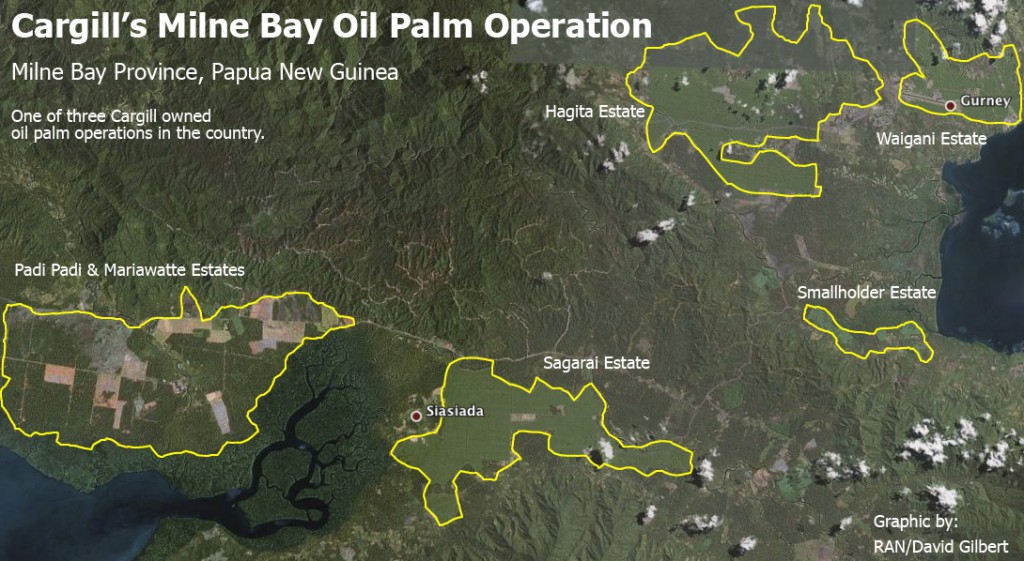A new, hard hitting, RAN case study on Cargill’s oil palm operations in PNG, ‘Commodity Colonialism’, is now available for download HERE.
Papua New Guinea (PNG) is a nation that does not easily fit with our society’s dominant ideas of development, property, and conservation. Many Papuans have little interaction with the cash economy; although categorized by development indexes as poor, these Papuans have never known food scarcity or landless poverty. Individual land holdings are rare – most land is held in communal agreements based on complex family, tribal, and political ties – but the nation has seemed to avoid the everyman for themselves, tragedy-of-the-commons dynamic Western thinkers have predicted for such communal agreements. For generations, PNG did not have a single national park or government protected conservation area, but the country has resisted the devastating rates of forest destruction that has plagued other tropical nations.
PNG’s unique geography, people, and ecosystems just do not fit very well into Western models of just about anything. But, in a trend seen all over the world, that is not stopping the World Bank and multinational agribusiness giant Cargill from forcing PNG to accept their investment-extraction-profit model.
After multiple rounds of multi-million dollar investment, and the creation of three massive oil palm estates, observers in Papua are beginning to see the effects of imposing a foreign model of development on PNG: increases in deforestation, heightened land conflicts, alcohol abuse, AIDS, and the emergence of landless poverty, a once unknown phenomenon.
After a month of detailed research, drawing from anthropological studies, societal and environmental impact assessments by the World Bank, and courageous field work carried out by the International Accountability Project, RAN has just released a case study on Cargill’s oil palm operations in PNG: Commodity Colonialism: A case study on Cargill’s oil palm operations in Papua New Guinea, laying out the truly dangerous effects of oil palm on this unique nation.
RAN is committed to providing impacted communities a voice at the table. A few weeks ago we sponsored a trip for Matilda Pilacapio, a PNG environmental activist and landowner from Cargill’s Milne Bay plantation, to come and dialogue with Cargill management in Minnesota.
An article on Matilda was featured over on Mongabay, a number of speaking events, and in a video interview right here on the Understory.
